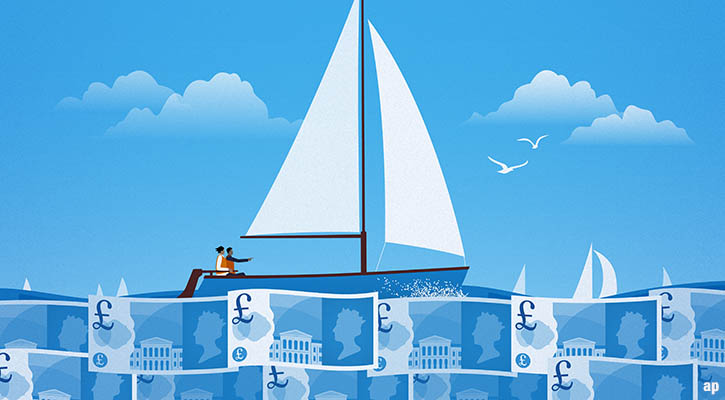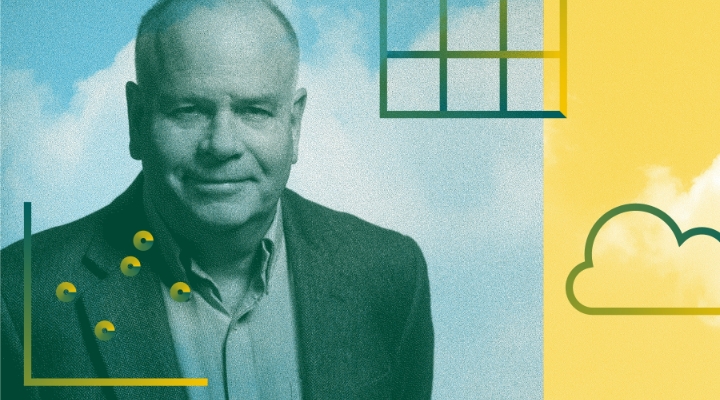
One afternoon when I was three years old, I took a walk to the local newsagents with my Mum.
As well as papers, it sold an array of toys. True to form, though, mum was in no mood to muck about. She gave me a choice. If I wanted a small treat, I was having a couple of plastic farmyard sheep, or I was having nothing at all.
Why am I telling you this? Well, I’ve had a good think and I am fairly sure it is my first memory of money. I still recall opting for nothing and changing my mind as we left.
In my last job, money memories were a fairly common topic of conversation. I join Morningstar as your new UK editor after six years with the financial publisher Citywire, where I was a pensions and tax reporter, before editing a magazine for professional financial advisers and fund pickers.
Tough Questions
Humour me for a moment. Financial advice has evolved dramatically from the pre-RDR days of commissions.
Nowadays, advice is something for which you pay a fee, but the more progressive side of that profession has found an even more wholesome niche from which has emerged possibly the most underrated service in the financial services: financial planning.
Financial planning does not start with the shiniest new investments or flashy tax promises. It starts with the client, and, in an almost whimsical way, their hopes and dreams.
If you are privileged enough to be able to pay for it, your planner will not just give you an overview of your entire financial position, but use relatively complex technology like this to determine when you can afford to do the things in life you want to do, at pretty much the minute you want to do them. Investments are a big part of it, but they are not the first stop on the train.
This approach is exemplified by a financial planner friend on the South Coast (hello Kev), who once told me he had a countdown timer on his phone log-in screen telling him when he himself could retire.
On a serious note, that kind of precision often involves very personal conversations about money, and, for some clients, that will be painful. Sacrifices follow. But it works, and it saves people money.
By way of example, there is no point dropping £10,000 on renovating your kitchen if the only reason you’re doing it is to make the neighbours jealous (and you actually do not enjoy cooking). I exaggerate slightly, but not that much. Your planner will suss it out.
To my point: while this is a service largely marketed at affluent folk, there is no reason why DIY investors cannot have those types of conversations with themselves, or their families. I will note at point that Brits are not very good at this. Money is a very touchy subject in the UK at the best of times. Nevertheless, financial planning should not just be for the "advised".
So, I wonder, what is your attitude to financial risk? Do you naturally embrace it, or reluctantly fear it? More intangibly, how do you "see" money? Is it just a facilitator of fun or, in the new crypto era, an old-fashioned way of running a broken system?
And, the classic: What is your first memory of money, and how did it inform your attitude to investing as an adult? It’s a question that often informs retirement planning, which we’ll be covering in more depth soon (for my colleague John Rekenthaler's excellent warning on high income funds, click here).
I won’t trouble you with my answers to all those questions, but you know my answer to the last. I have pondered it as I get my feet under the table at (the almost perfectly titled) Oliver’s Yard in the northern tip of the City of London, home to Morningstar’s UK office.
High Stakes
Confessedly, for me money was always about things I wanted, and nice things at that. As a kid, I saved the paltry £2 a week pocket money I was given by my Dad to buy the latest super soaker, or some pointless toy with flashing lights on it. When I eventually got a job aged 13, I saved the money I earned in anticipation of nicer things later.
The concept of investing only came to me later, and I regret that, as – and here’s the old saying – the best time to invest was yesterday.
Today, I have a modest set of pension investments and a stocks and shares ISA. I am really into artificial intelligence funds, and am pondering selling out of Terry Smith’s famed UK equity fund for something less predictable, frankly. I am probably about the billionth person to have stuffed a grand into Vanguard LifeStrategy 80% Equity.
Overall, I wish I had done more and sooner. As these columns progress, you’ll get a look at my investment journey as it unfolds.
But there is another reason why we need to have "the chat" about the point of money early on in our lives. Being a DIY investor can feel lonely, particularly if things go badly wrong (for more on fraud and crime, check out this week's reminder from Morningstar editorial manager Sara Silano on how to spot an investment scam).
There are several safety nets awaiting people who have ended up in dire straits, but while those are vital, it would be better to reduce such occurrences altogether.
In this environment, good information is already at a premium. Its share price will surely only rise.
So, as I start this new role with a fantastic UK editorial team at Morningstar, I am mindful that the stakes could not really be higher for investors, whether they regularly read our content or not.
For those that do, I hope I can do justice to the faith you place in Morningstar to give your money decisions an empirical edge. I am excited to get to know you.
For those not yet familiar with the brand, I am keen to win your interest. I hope our work will be a trustworthy voice in an otherwise confusing cacophony of news, views, and uncertainty.
Until next time.
Ollie Smith is UK editor at Morningstar. Follow his Friday column on morningstar.co.uk for his thoughts on investing, retirement, and business news































